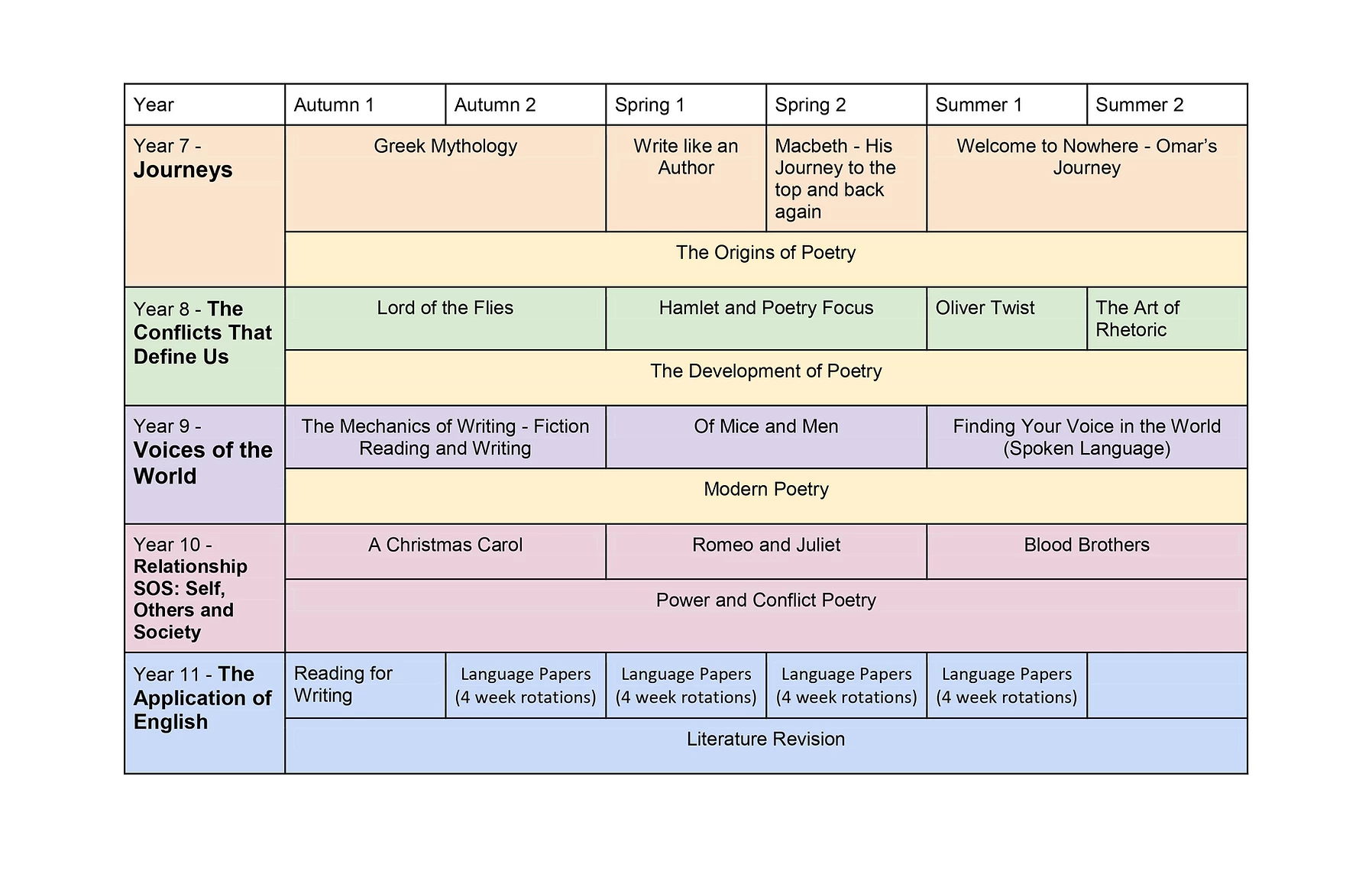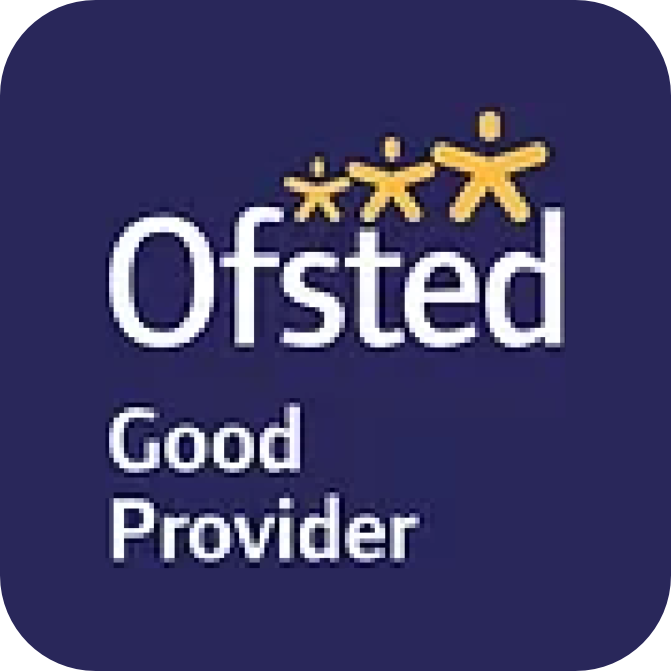KS3 Subject Intent
The KS3 English Curriculum has been constructed around four key principles in line with the National Curriculum:
1. English lessons should help students to become literate and accurate writers.
2. English lessons should help students to build their comprehension and analytical reading skills.
3. The texts studied in English lessons should help students to build their cultural capital.
4. The English curriculum should provide ample opportunities for students to communicate and explore a wide range of ideas and concepts.
The theme of Year 7 is ‘Journeys’ as we take our students on the journey from the origins of storytelling with Greek Mythology, through to the modern novel ‘Welcome to Nowhere’ which explores the journey of a refugee.
Year 8 is themed around ‘The Conflicts That Define Us’, exploring the internal and external conflicts that make us who we are as both people and a society. We also work on developing students’ opinions and self-expression through a spoken language unit at the end of the year.
The Year 9 curriculum has been designed to consolidate and hone the knowledge and skills developed throughout Year 7 and 8, as well as supporting students with their transition into KS4. The theme of Year 9 is ‘Voices of the World’, offering students the opportunity to explore narratives that take them beyond their own experiences. The year begins with students studying diverse short stories to develop their reading and writing skills. They move onto studying a literary text that develops analytical skills and the connection between text and context. The year ends with non-fiction reading and writing, offering students the chance to find their own voice in the world. Teachers continue to develop explicit writing skills, with the focus shifting to crafting of whole texts and extended pieces of writing which is reflected in the assessment system.
Throughout the three years, poetry is interweaved. We begin with the origins of poetry and move through the history of poetry to the present day.
The texts studied throughout KS3 in English help students to understand the foundations of English Language and Literature, as well as developing their schema of the wider world. We aim to aid them in considering experiences outside of their own personal context, but also in understanding and contextualising their own experiences within the world.
As students explore new texts, they study recurring themes, ideas and concepts, consolidating their understanding and building towards mastery of the subject as their studies progress. Each scheme of work has a range of opportunities for students to express their interpretations and ideas in varying ways, both independently and also in group-based contexts.
Students’ progress through the curriculum is assessed through a knowledge test, which requires students to recall knowledge from what they have previously studied. The knowledge application assessment is designed to identify any gaps in specific areas of English, which will then feed into the planning process for subsequent units.
KS4 Subject Intent
The KS4 curriculum has been constructed to build upon the four key principles from KS3:
1. English lessons should help students develop into writers who craft their work with a high level of accuracy.
2. English lessons should develop students’ ability to formulate a clear argument and extended essay in response to the focus texts.
3. The set texts studied in English lessons allow students to develop their analytical skills and understand the link between text and context.
4. The English curriculum should continue to provide opportunities for students to explore a wide range of ideas and concepts, with a focus on developing a well-informed, individual response to topics.
In Year 10, the curriculum turns its attention to the English Literature specification. Each of the texts chosen for study at KS4 has been carefully considered with our students in mind. The theme that connects them is relationships: a thread that will allow students to see the link between each text, making them more memorable. Alongside these texts, teachers continue to develop students’ writing skills. Using the texts as a springboard, teachers provide students with a wide range of stimuli for fiction and non-fiction writing.
Moving into Year 11, the focus is on knowledge retention and deepening students’ understanding of texts through revision. Teachers focus on the continual development of students’ reading and writing skills to ensure that each pupil is adequately equipped for both the exam and life after school. Each scheme of work, and each lesson, combines knowledge and knowledge application to push all students towards mastery. Year 11 planning is driven by data: teachers use regular assessments to identify which students need support and plan small group sessions within the lessons to address any gaps and promote success for all.








